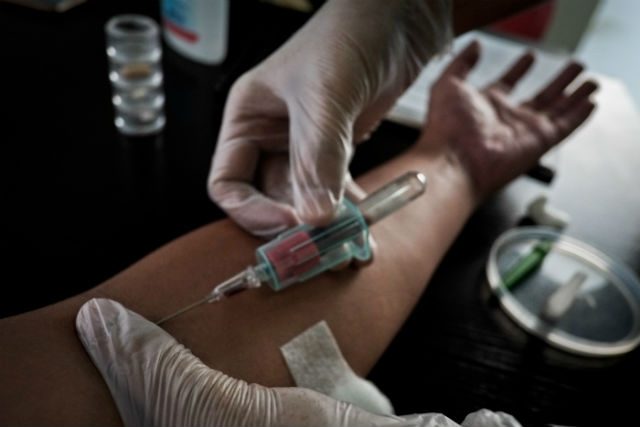SUMMARY
This is AI generated summarization, which may have errors. For context, always refer to the full article.

MANILA, Philippines – People living with human immunodeficiency virus (PLHIV) are again faced with the threat of another virus: the coronavirus disease or COVID-19. But they are not alone in their fight, as community-based organizations in the Philippines have intensified their efforts to ensure that PLHIV treatment and care remain uninterrupted amid the pandemic.
Since March 17, the Philippine government has enforced a lockdown on the entire island of Luzon, home to over 57 million people, in a bid to contain the spread of the coronavirus disease in the country.
Following the announcement, checkpoints were set up. Mass public transportation was suspended, and land, air, and sea travel restricted. According to government officials, Filipinos must stay home as the general rule. (READ: LIST: Who are allowed out during Luzon lockdown?)
Hurdles posed by the lockdown
People living with HIV are among those significantly affected by the enhanced community quarantine, as it poses challenges to access life-saving medication and services. As of August 2019, the HIV/AIDS and ART registry of the Philippines reported that 40,952 PLHIV are undergoing antiretroviral treatment (ART).
The World Health Organization (WHO) and the Joint United Nations Programme on HIV/AIDS (UNAIDS) have explained that there is currently no evidence that PLHIV are at an especially increased risk of contracting COVID-19.
However, WHO and UNAIDS emphasized that this does not mean that PLHIV should take COVID-19 lightly and reiterated that they must take the same precautions as the general population.
This includes washing hands often, physical distancing, avoiding touching face, practicing good respiratory hygiene, self-isolating if with contact with someone with COVID-19, and seeking medical care if symptomatic.
Additionally, WHO advised PLHIV who are taking ARV medication to ensure that they have enough for at least 30 days, or enough to last 3 to 6 months if possible. They should also make sure that their vaccinations – both influenza and pneumococcal vaccines – are up to date.
Acknowledging the challenges posed by the quarantine for PLHIV to access life-saving ARV medication, the Department of Health released an advisory outlining measures to ensure access to medication and services needed during the lockdown.
Among its proposed measures was the use of courier service for pick up and delivery of needed ARVs during the lockdown.
The DOH said electronic or SMS appointment information can be used as proof of entry of PLHIV in areas under community quarantine, during extreme instances where visit to a treatment facility is necessary.
The DOH also ordered treatment facilities to cater to all PLHIV for their ARV refill and other needed services, regardless of treatment facility affiliation, and to ensure that mechanisms are in place for coordination and communication between their staff and PLHIV in their area.
Community-based organizations have been quick in making necessary adjustments to comply with the ECQ and the DOH advisory to ensure continuous provision of services and medication to PLHIV.
Shift to online services
Several of these organizations have moved most of their consultations online and have started using telemedicine to attend to their clients.
Pinoy Plus Advocacy Pilipinas Incorporated President Owie Franco shared that apart from their online call center, PLHIV Response Center (PRC), interim shared file services are being used to encode shareable information.
He emphasized that protective measures are done to ensure the confidentiality of patient information when using these online services.
Pick-up and delivery services
Aside from online services, some groups have developed new mechanisms to aid access to ARV medication.
The Xpress by LoveYourself and the Oplan ARVayanihan by The Red Whistle and MapBeks provide PLHIV access to medication without having to leave their homes by offering pickup and delivery services.
They also provided an online map of ARV distribution points and developed the #SafelyPH app which can direct PLHIV to the nearest hygiene clinics and treatment hubs in their community.
Assessing needs
The United Nations Development Programme Philippines and UNAIDS Philippines have launched a survey, which can help inform and guide the national AIDS and sexually transmitted diseases prevention and control program of the DOH, UN agencies, and other groups in making services more accessible for PLHIV during the coronavirus pandemic.
@undpph and @unaidsph are conducting a survey of concerns of Filipinos living with HIV in accessing treatment and care services in the time of COVID-19 pandemic.
You may access the short survey at https://t.co/WGqkkPzl63. pic.twitter.com/VjZuCtHGmv
Other challenges
Despite the success of these innovations, many groups see additional challenges if the lockdown in Luzon is extended beyond April 12. The lockdown in Metro Manila is until April 14.
Organizations that provide temporary shelter for PLHIV such as the Positive Action Foundation Philippines Incorporated (PAFPI) see a possible shortage in food, basic necessities, and medication.
“The current stockpile that we have is projected to last for two weeks. We are communicating with our donors for additional provisions of important commodities, especially food, should there be an extension. Another concern is the refill of ARV medication, given that public transportation is being put on hold,” said PAFPI Training Coordinator Robert Lim.
Despite the DOH advisory, delivery of life-saving medicines continues to be a challenge.
“While the government has ensured free mobility on cargoes and medicines, this is not the case that is happening on the ground, especially for deliveries going outside Metro Manila. Checkpoints and other logistical hardships have pushed some logistic companies to scale down or close their operations,” shared Danvic Rosadiño, Senior Operations Manager of LoveYourself Inc.
“We hope that there is a way for the government and its local units to ensure unrestricted delivery of cargoes, particularly medicines. While it is already written on paper, in reality, this is not always ensured,” he added
Access to HIV viral load testing is also a concern. The Sustained Health Initiative of the Philippines (SHIP), which sends blood samples of their PLHIV clients to the Philippine General Hospital (PGH) for testing, says that now that the PGH has been designated as a COVID-19 referral hospital, they are uncertain if the PGH can still provide this service.
Benedict Bernabe, President of The Red Whistle, is also concerned with the impact of the lockdown on HIV testing and linking PLHIV to care.
“Testing has stopped so we will probably reach less clients than targeted, diagnostics tests are not the priority, enrollment to treatment is also paused,” he said.
Several community-based organizations also acknowledge the possibility of burnout and fatigue among their volunteers and donors.
Notwithstanding these challenges, many of these groups are working to ensure the sustained delivery of life-saving medication and services to PLHIV. Indeed, not all heroes wear capes. – Rappler.com
Ma. Irene N. Quilantang is an Assistant Professor of Psychology and Behavioral Sciences at the University of the Philippines – Manila. She is currently studying Global Public Health at Brown University in the United States.
Add a comment
How does this make you feel?





There are no comments yet. Add your comment to start the conversation.